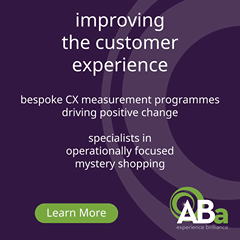Q&A: Dean Frew Chief Technology Officer and Sr. VP RFID Solutions | SML Group
Can you tell us a bit about your background?
Dean Frew, Chief Technology Officer and Sr. VP for RFID Solutions, SML Group. Mr Frew is responsible for driving SML’s RFID Tags and Solutions strategy. He runs the RFID solutions division, based on his 20+ years of experience delivering RFID solutions to retailers and brand owners around the globe.
How are retailers using your systems to gain competitive advantage and what does best practice look like? Can you share a case study with us?
SML enables retailers to implement item-level RFID solutions aimed at transforming their businesses at an operational level. The technology allows retailers to gain greater management, visibility, and control of their inventory, which can lead to drastic operational improvements. Since 2018, SML has been working with Swedish retailer, Stadium, deploying our item-level RFID solutions, Inspire™ RFID tags, and Clarity® enterprise software. The result has been a truly transformational improvement in inventory management and customer service. Starting as an initial pilot project, the partnership has seen the full deployment of item-level RFID technology across 180 Stadium retail stores in the Nordics, allowing the brand to count its stock in every store weekly, instead of its previous once a year stock count. Stadium is also using RFID-enhanced Receiving and Sales Floor Replenishment. As a direct result, Stadium has seen an increase in inventory accuracy from 70 percent to 99 percent, generating a dramatic improvement in business performance across the chain. Having completed the full deployment at the end of 2021, Stadium has now implemented SML RFID’s item-level RFID technology across 180 stores throughout the Nordic region, utilising SML’s Inspire™ RFID tags, Zebra handheld RFID readers, and SML’s Clarity® software suite. Stadium boasts a 99% inventory accuracy level and has seen a significant increase in sales across the board.
Are there other companies you partner with?
Microsoft, Zebra, NXP, Impinj, Oracle, etc…
What challenges and opportunities do you see in UK retail for 2022?
Many retailers are experiencing a significant challenge around inventory management and visibility. SML recently published a piece of research that identified a number of obstacles retailers would face in the year ahead. Surveying more than 500 retailers across the UK and US, it was clear that delivering better customer experiences was crucial and that frequently out-of-stocks would be a hurdle to achieve this.
Our ‘State of Retail Insight Report: Better Serving Customers Through Technology’, found that 43% of retailers believe enhanced stock level visibility will help them better serve customers. The report also found that 48% of UK and US retail decision-makers experience that out-of-stock items are the primary challenge for retailers in the current climate.
During the pandemic, many retailers began utilising omnichannel and online strategies to serve their customers. Online presence has been a high priority for many retailers over the past two years. In fact, two out of five retail decision-makers (42%) say online home delivery has been their primary sales channel over the past year. However, persisting visibility issues were never going to simply cease to exist. In neglecting to innovate in-store during the pandemic, the problem has only been swept under the carpet – and the labour shortage only makes retailers feel these ramifications more.
How will you address these challenges and turn them into successes?
The implementation of game-changing technology has been a strategy for the retail industry for years. Elevating and evolving technologies have enabled retailers to navigate a number of challenges, from rising overheads, increased competition, and changing customer expectations. The past two years have been no different but there is still a lot of work to do. With frequent out-of-stocks remaining a crucial challenge for retailers, the ability to streamline visibility and automate stock counts will be the key to success. However, according to the data, retailers spend on average 10.9 hours per week searching for inventory, with some stating that they take up to an additional 36 hours per week on this task as well. While the benefits of having a better view of inventory are apparent, the process of associates taking manual stock takes is not sustainable. Implementing item-level RFID technology can alleviate these pressures by removing the need to carry out manual stock counts. The technology provides greater visibility of a retailer’s inventory across their entire estate, no matter where it is located within the supply chain or which channel it is being sold on. Using the technology, retailers can gain a 98% accuracy on their inventory visibility while also carrying out weekly stock counts within a matter of minutes.
Any final thoughts?
We expect to see the adoption of Item-Level RFID technologies is accelerating across a number of retail segments to continue. This is a very healthy sign for the industry. We estimate that the market is only 15% penetrated based on number of stores deployed, showing that there is a long way to go and early adopters will and are separating themselves from their competitors. We look forward to supporting this growing set of innovative retailers.














